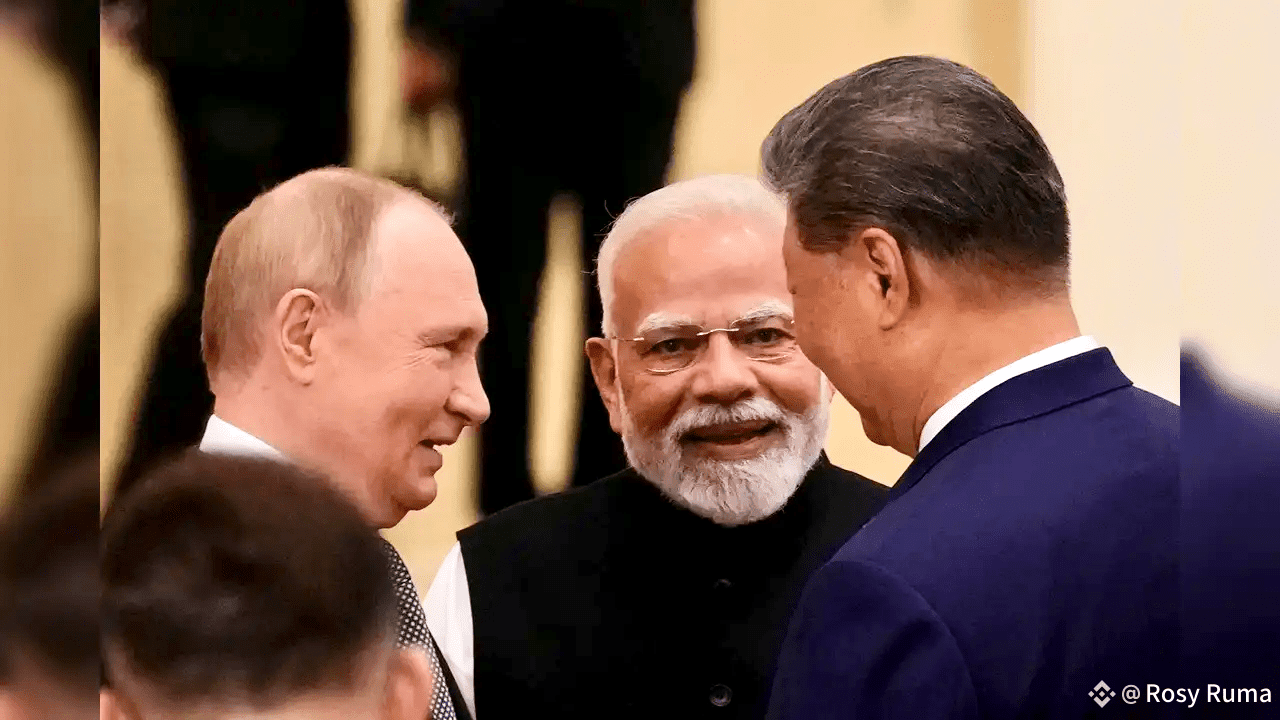 US President Donald Trump’s aggressive trade and diplomatic tactics are causing a significant shift in global alliances, with traditional US allies, including India, looking toward China for new partnerships.
US President Donald Trump’s aggressive trade and diplomatic tactics are causing a significant shift in global alliances, with traditional US allies, including India, looking toward China for new partnerships.
Tensions Between the US and India
Trump’s blunt foreign policy has put a strain on US-India relations, with Trump publicly criticizing India’s growing ties with China and Russia. On Truth Social, Trump remarked, “Looks like we’ve lost India and Russia to deepest, darkest, China,” while posting a photo of leaders Modi, Putin, and Xi at a recent summit. His comments underline a growing rift with India, a nation he once saw as a key partner.
India's Prime Minister Narendra Modi recently visited China, marking his first trip there in seven years, fueling speculation of a potential strategic shift away from Washington. Trump's administration has been criticized for its handling of relations with India, particularly over tariffs and trade disputes.
Trump’s Trade Tactics: Pressure Backfires
Several actions by Trump have worsened the situation:
Imposing high tariffs on Indian goods, including a 25% duty on crude oil imports from Russia, angered India.
Trump's claims of having “solved” the India-Pakistan conflict also drew backlash from New Delhi, which has always maintained that the matter is a bilateral issue, not one for external powers.
Trump’s attempts to pressure India into concessions have backfired, with experts noting that these tactics may leave “lasting scars” on a relationship critical to US interests.
US Allies Turn to China
At the Shanghai Cooperation Organization (SCO) summit this week, leaders from countries affected by US tariffs—including Egypt, Turkey, Vietnam, and Brazil—gathered with China and Russia, signaling a shift in global power dynamics. India’s growing closeness with these countries has raised concerns in Washington about the long-term consequences for its foreign policy.
Domestic Sentiment and Global Ramifications
Experts argue that India’s growing frustration with US tactics is rooted in its history of colonialism, with the Indian public resistant to being dictated by foreign powers. Shashi Tharoor, a prominent Congress leader, pointed out that after enduring over 200 years of British rule, India is not prepared to bow to pressure from any power.
As a result, India’s pivot to China—if it continues—could have significant global ramifications, particularly in terms of technological leadership and regional security. Former US officials warned that a breakdown in US-India relations could harm both nations in the long run.
Easing Tensions?
Despite the current tensions, there are signs of diplomacy trying to ease the strain. After Trump called US-India relations “special,” Modi responded positively, emphasizing India’s strategic partnership with the US.
Still, the pressure on trade and tariffs remains a major point of contention between the two countries. The question remains: Can this relationship be repaired, or is India’s pivot to China inevitable?
Conclusion: A Shifting Global Order
As traditional US allies like India explore alternative alliances, Trump's diplomatic approach continues to stir uncertainty on the global stage. India’s growing relationship with China could reshape future geopolitical dynamics, leaving the US to reconsider its foreign policy strategy.
👉 Follow me for more latest updates and insights 👍
Thankyou 🙏